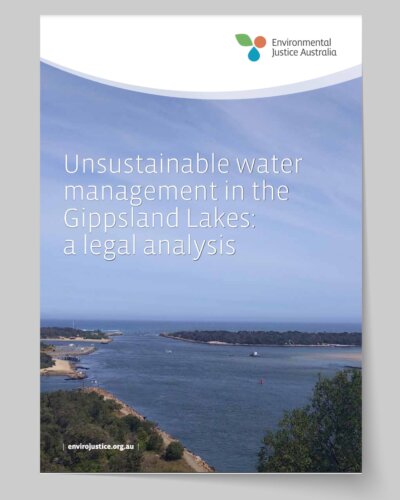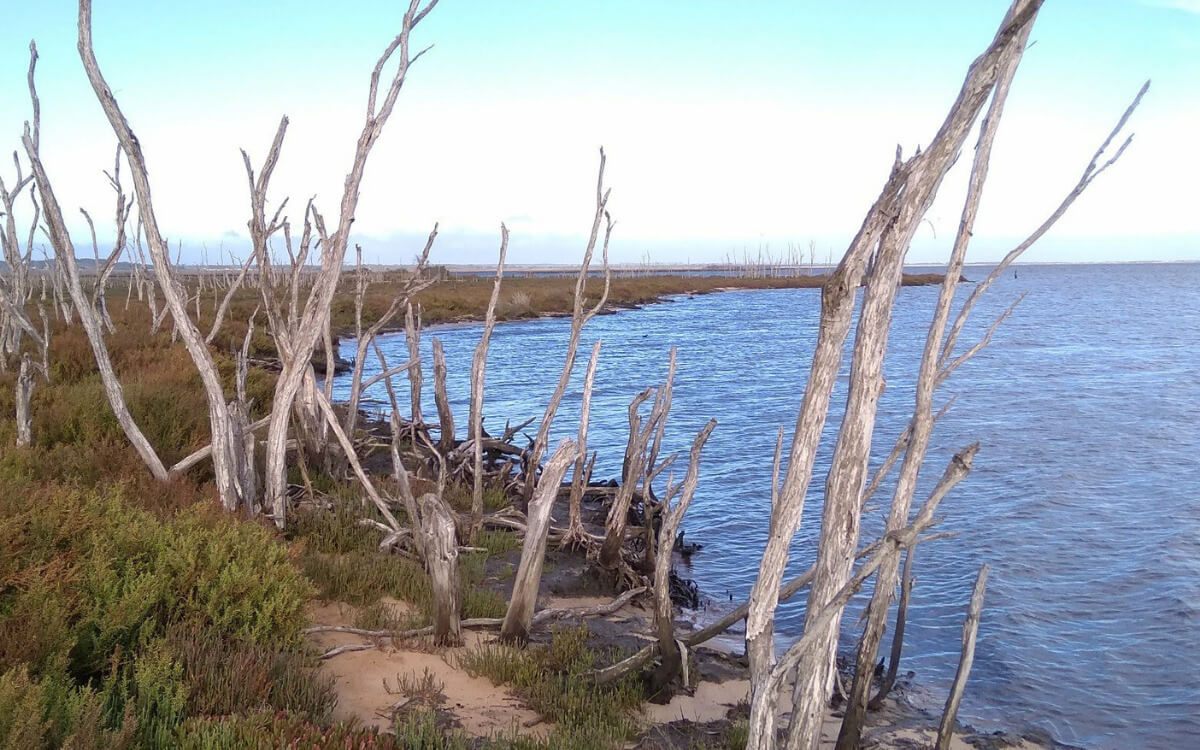The Gippsland Lakes are a network of coastal lagoons and marsh environments and are the largest estuarine lagoon system in Australia. They consist of three large coastal lagoons (Lake Wellington, Lake Victoria and Lake King) and fringing wetlands, which are ecosystems home to unique wildlife. The Lakes are internationally protected under the Ramsar Convention because of their importance to global biodiversity.
Our latest report, Unsustainable water management in the Gippsland Lakes: a legal analysis has found that unsustainable management of water resources in the internationally protected Gippsland Lakes could put the Victorian government at risk of legal challenges.
The report, which offers detailed analysis of scientific analysis and legal principles, finds current management of the Gippsland Lakes system has put it on a “trajectory of decline” and threatens a failure to abide by basic legal obligations for sustainable management of water resources.
It details ways in which poor management of the Lakes ecology has generated “threats of serious or irreversible damage” to wetlands, vegetation, fish species and shoreline stability. Poor regulation has led to salinity from reduced freshwater inflows and the dredging of a permanent entrance to the Lakes. The impacts of logging, burning, mining and climate change are additional pressures.
The report reviews extensive and long-term scientific investigations into the Gippsland Lakes, drawing together findings on multiple sources of ecological stress and crises. Against these findings, the EJA analysis scrutinises whether current management of these dynamic coastal wetlands is prudent, equitable and preserves their ecological integrity.


